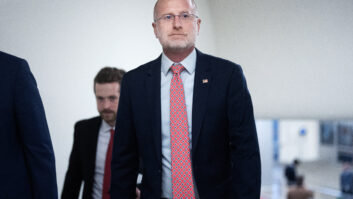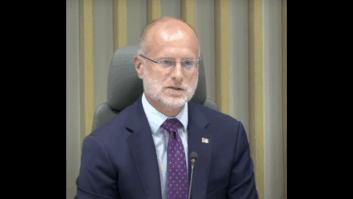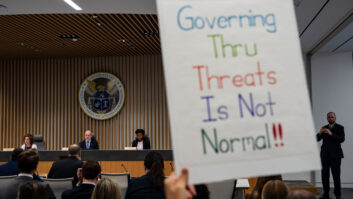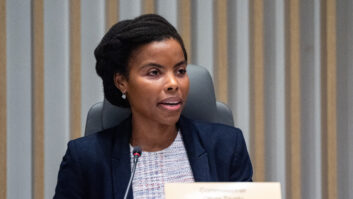Sen. Ted Cruz says the FCC has now agreed to hold a full vote on Audacy’s Chapter 11 reorganization plan.
Cruz, the senior Republican on the Senate Commerce Committee, had pressed Chairwoman Jessica Rosenworcel not to use an administrative process to handle the case.
“According to FCC staff,” his office wrote in a press release, “Chairwoman Rosenworcel initially attempted to force the license transfer through a bureau-level order, but elevated the matter to a commission-level vote in response to urging by Sen. Cruz for greater accountability and requests by Republican Commissioners Brendan Carr and Nathan Simington.”
It quoted Cruz saying he was “very pleased that Chairwoman Rosenworcel has come to her senses and abandoned her plan to have unaccountable bureaucrats rubber-stamp George Soros’s takeover of Audacy. Considering the significance of the matter at stake — a request for a waiver of statutory foreign ownership limits to transfer Audacy’s hundreds of broadcast licenses to new owners in the run-up to the presidential election — I have repeatedly said that a full commission vote is both a basic duty of the FCC commissioners and necessary to protect the interests of the American public.”
Soros Fund Management would become the largest shareholder in the big media company after Audacy emerges from bankruptcy in a plan that has been approved by a federal court. Cruz and other conservatives have expressed concern over what he called “George Soros’s takeover of Audacy’s nationwide radio network.” Businessman and philanthropist Soros is known for his left-leaning political orientation.
It’s not clear that Soros would push Audacy programming in that direction, nor is the FCC supposed to approve or reject bankruptcy organizations on the basis of political leanings. But the case has become a political football anyway, with the nominal objection being around the foreign ownership waiver.
If the Audacy decision does come down to a party-line vote it would pass, since the Democrats have a 3–2 majority. But a formal vote gives its opponents another opportunity to voice their concerns in a higher-profile way.
Radio World invited FCC comment but it generally does not comment on pending transactions.







